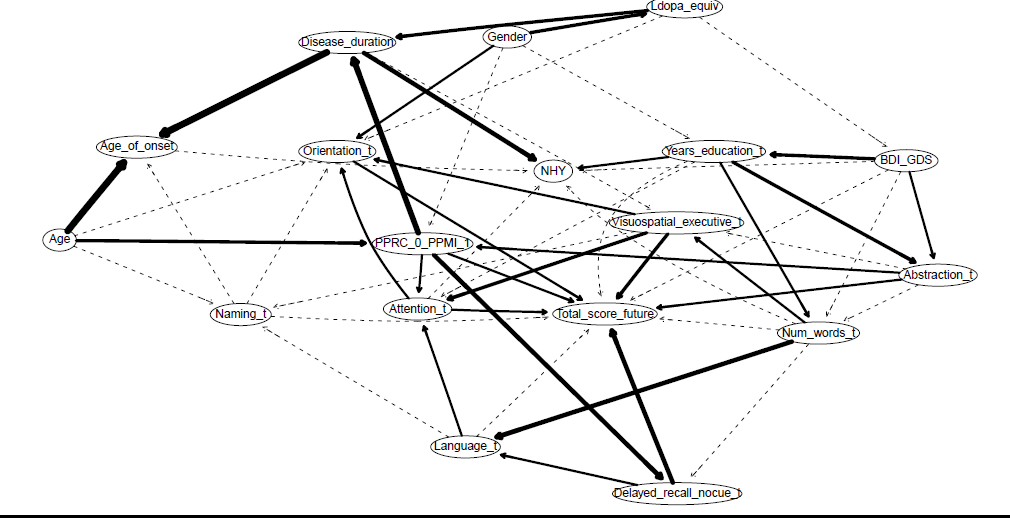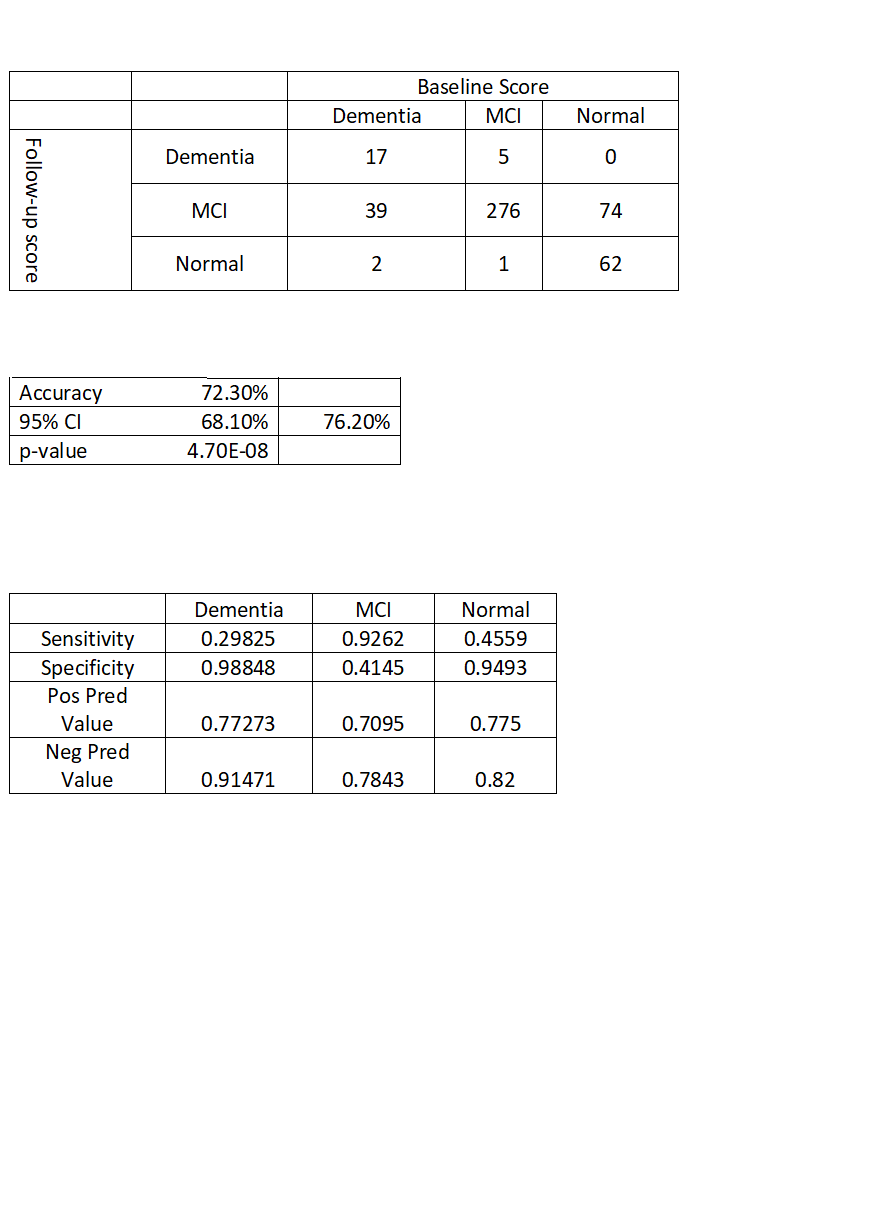Session Information
Date: Monday, October 8, 2018
Session Title: Parkinson's Disease: Cognition
Session Time: 1:15pm-2:45pm
Location: Hall 3FG
Objective: To predict subsequent development of Parkinson’s dementia using parameters which can be easily obtained in a regular clinic visit using a machine learning approach.
Background: The development of Parkinson’s disease dementia is likely multifactorial. It can be challenging to analyze the impact of each risk factor contributing to the development of PDD in an outpatient setting. Here we propose the use of a machine learning algorithm to predict Parkinson’s disease dementia using easily obtainable clinical information.
Methods: We pooled data of patients enrolled in the Parkinson’s Progressive Markers Initiative (PPMI) and Pacific Parkinson’s Research Center for this study. We included patients who had at least 2 Montreal Cognitive Assessments (MoCA) at one-year intervals. We also included 3 demographic variables (age, gender and years of education), 4 clinical variables (age of onset, disease duration, H&Y stage and Levodopa Equivalent Dose [LEDD]) and 9 rating scale variables (MoCA subscores and total score, Depression rating scale score). In order to be of most clinical use, we created a model that predicted a subsequent MoCA score (MoCA(t+1)) given demographic variables and the pattern of MoCA scores at the current time point (MoCA(t)) . If a subject had more than two MoCA scores, we treated each possible {MoCA(t+1), MoCA(t)} pairs as independent events. We learned the Bayesian network structure by the hill climbing method. After the network structure had been learned, network parameters were learned using Max Likelihood estimation (MLE) using 10-fold Cross-Validation.
Results: The pooled group of 1491 MoCA samples (417 unique patients) was used to create a Bayesian network with 18 nodes. We analyzed the histogram of each node of our network and obtained a value which would likely predict the future MoCA score in dementia range. We found that the model predicted dementia with an accuracy of 78%.
Conclusions: We consider Bayesian network to be a useful method to predict future dementia in Parkinson’s disease with reasonable accuracy as well as to visualize the probabilistic relations among variables of interests. As with any statistical modeling technique, the BN model can be strengthened as we add more clinical data over time. Another important improvement would be to extend the feature set to include other low cost to collect features and increase the accuracy. An online predictor implementing the above approach can be found at the URL: https://pprc.shinyapps.io/onlinemoca_predictor/.
References: Morales D, Vives-Gilabert Y, Gómez-Ansón B, Bengoetxea E, Larrañaga P, Bielza C, et al. Predicting dementia development in Parkinson’s disease using Bayesian network classifiers. Psychiatry Res [Internet]. 2013;213(2):92–8. Obermeyer Z, Emanuel E. Predicting the Future — Big Data, Machine Learning, and Clinical Medicine. N Engl J Med. 2016;375(13):1216–9.
To cite this abstract in AMA style:
P. Surathi, M. Mirian, K. Sundvick, S. Appel-Cresswell, M. McKeown. A bayesian network approach for prediction of future dementia in Parkinson’s disease [abstract]. Mov Disord. 2018; 33 (suppl 2). https://www.mdsabstracts.org/abstract/a-bayesian-network-approach-for-prediction-of-future-dementia-in-parkinsons-disease/. Accessed February 13, 2026.« Back to 2018 International Congress
MDS Abstracts - https://www.mdsabstracts.org/abstract/a-bayesian-network-approach-for-prediction-of-future-dementia-in-parkinsons-disease/


